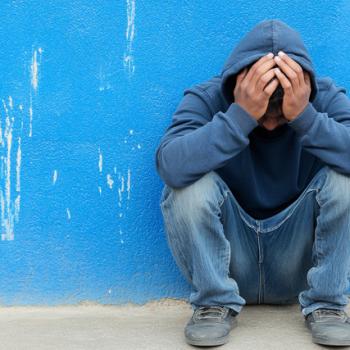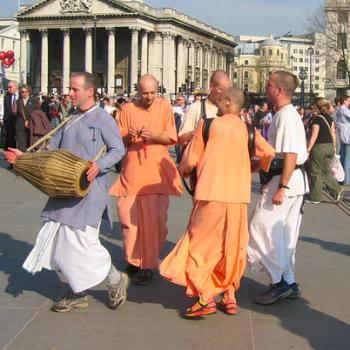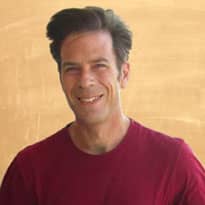Just before Gopnik moves the whole family to Connecticut, he notices Olivia beginning to flip the script. In Ravioli's continuing absence, she spins adventures in which she "saved all the animals in the zoo" or seized the wheel from a taxi driver and "got all the moneys." He concludes: "From the stalemate of daily life, a fantasy of victory emerged."
In a Facebook exchange, Lisa Mladinich, who writes the Patheos column "Be an Amazing Catechist," assured me that kids can internalize frightening theological concepts just as deftly. When she read an interview with Austrian mystic Maria Simma to her daughter, then 11, it helped the girl, she said, "to understand that hell is a choice, that it is a profound turning-away from God, a refusal of his mercy. No one is damned. But it is possible for us to damn ourselves." In other words, Lisa was shrewd enough to emphasize the personal agency that Bettelheim says kids teach themselves through fairy tales, and which Olivia Gopnik taught herself through her abortive imaginary friendship with Charlie Ravioli.
The system, it seems, becomes snafu when the goal is made to seem plain unreachable. "I hated Jesus and the Hebrew prophets," George Orwell wrote of his boyhood self. "In the New Testament, my friends, if any, were Ananias, Caiaphas, Judas and Pontius Pilate." There was a logical reason why. At St. Cyprian's, the prep school he attended at reduced fees, he suffered constant humiliation over his family's relative poverty, his personal unattractiveness, and his poor performance at football. All of it combined into a sense of being predestined to perdition. As Orwell puts it: "The good and the possible never seemed to coincide."
Conducting my own informal survey of relatives who were catechized during the grand old days of the pre-Conciliar Church, I heard some of the same basic themes. "It was rules, rules, rules, rote memorization and suffering," one told me. "Heaven didn't seem like much of a possibility at all." Every one of them went through a phase of what psychologists would call "scrupulosity," but which seemed, given the constant reminders of sinfulness, to be a perfectly logical state of being. Not one of them remains a practicing Catholic. "I decided that life itself is hellish enough," my mother explained. "There's no need for an after-hell on top of it."
Me, I was spared all that, with the result that I was usually able to find something edifying in even the most gruesome stories. When I was seven, I managed to get my hands on a translation of Heinrich Hoffmann's Der Struwwelpeter, which includes a poem called "The Dreadful Story of Harriet and the Matches." The title tells all: some girl, flouting the instructions of her mother, her nanny, and even her cats, strikes some matches and sets herself on fire. Within a few stanzas, all that remains of her is a pile of ashes and a pair of shoes.
The story affected me deeply, but not in any way I would consider unhealthy. Rather than a neurotic dread of fire (or a self-destructive fascination with it), what I felt was an intense sorrow for poor Harriet. She seemed like a basically good kid, and I hoped people said nice things about her at the funeral. In short, the awful verses awakened compassion.
It should go without saying that I'm no catechist. To recommend from all this that sin and hell be taught in the manner of frightening fairy tales with happy endings seems a little bold. Still, it's good food for thought. It certainly gives me new perspective on those Hell Houses various Protestant churches open during Halloween season. To my adult sensibilities, they seem awfully tacky. But, in fact, they may be like heavily powdered strawberry Quik—something only a kid can enjoy.





